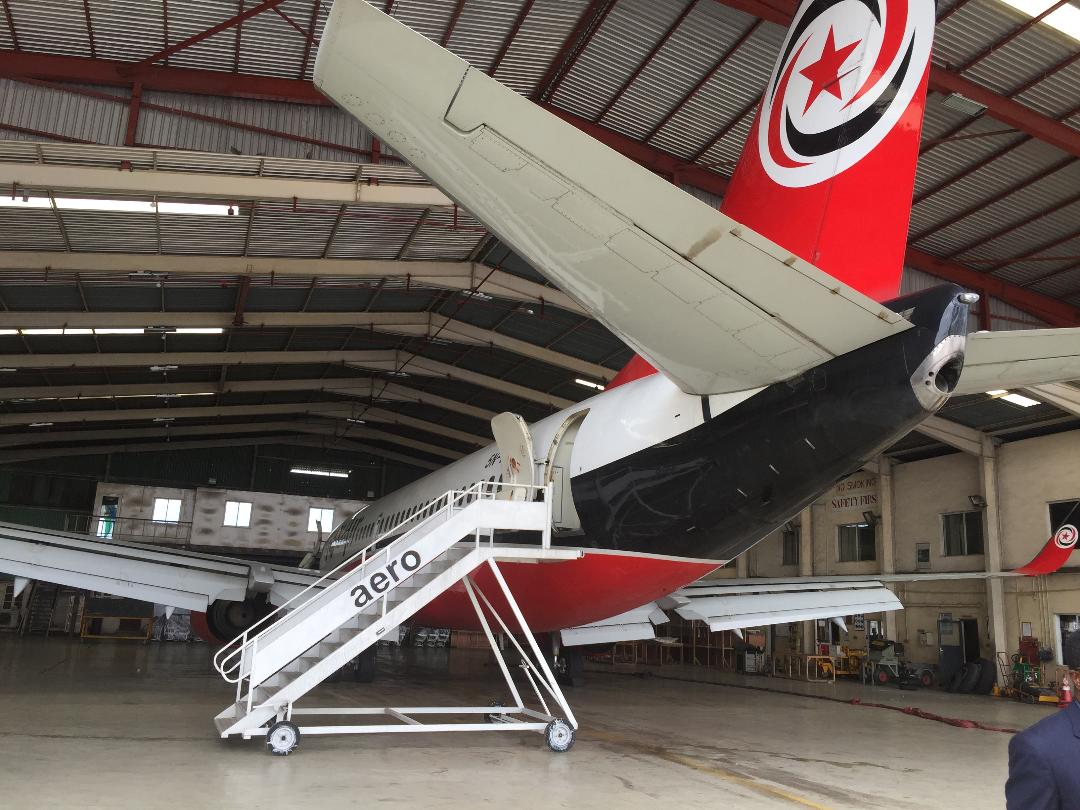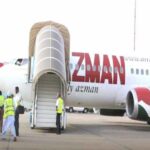
Events since July 2020, when domestic carriers resumed flight operations after the coronavirus-induced lockdown have reinforced the call for urgent establishment of major Maintenance, Repair and Overhaul (MRO) facility in Nigeria.
THISDAY investigations disclosed that a major problem the domestic airlines faced was the non-availability of their operational equipment. The aircraft they put on storage were ready to start operation, which they did, but shortly after many of them were due for C-check. So some of them had to be ferried overseas.
THISDAY also learnt that some of the Nigerian carriers had some of their planes abroad for checks but because of the lockdown they could not be worked on. This is because most of the MRO facilities abroad were also on lockdown. Even now, some of the maintenance companies still shut down the facilities.
Informed source also told THISDAY that another challenge that came up for the airlines was that even if they have aircraft that have completed their checks, the domestic carriers may not have the foreign exchange to pay for the services rendered to bring the airplanes back.
Industry stakeholders said these two challenges would have been solved if Nigeria has major maintenance facility. Those aircraft would not have been ferried overseas and the services of the maintenance company would have been paid for in local currency.
“This is the reason why it is very critical that we have maintenance facility in Nigeria; not just one but two or three because whatever we have will serve the West and Central Africa and by the projected growth of air transport in Africa, many more aircraft would come in in few years,” an industry source insider told THISDAY.
In 2016 the Minister of Aviation, Senator Hadi Sirika, said as part of the aviation road map this administration would establish aircraft maintenance facility located in Abuja, the Federal Capital Territory, but till today, there is no indication that there is any physical process to actualising that goal.
The only succour Nigerian airlines have is the Aero Contractors MRO, which was revived when Captain Ado Sanusi took over the airline and today it has become very critical for Nigerian carriers.
Although the facility is eligible to maintain Boeing 737 Classics, turbo props, like Bombardier Q400 and Q300 and other small planes, it is waiting for certification from the Nigerian Civil Aviation Authority (NCAA), to start maintenance on Boeing B700 and B800 the New Generation B737 airplanes.
Existing aircraft in Nigeria are less than 40 per cent of the airline’s capacity; the rest are overseas. At least, 17 per cent of Air Peace aircraft are in maintenance facilities overseas. As the biggest carrier, having such number of aircraft outside the country, means that the capacity of Nigerian carriers is significantly eroded.
Industry observers said that this has given rise to outrageous airfares, as more people are wont to travel by air when there are fewer aircraft seats on offer.
Besides Aero Contractors, Akwa Ibom state government may have gone back to complete its MRO facility started some years ago and it is hoped that in the next two years the project would be completed. Nigeria also has 7 Star Global Hangar Limited, which may have completed its facility in Lagos.
But Nigeria does not only need MRO facility, it also needs required skilled personnel.
Head of Approved Maintenance Organisation (AMO) Aero Contractors, James Ominyi, once also told THISDAY that for Nigerian MROs to develop the capacity to take over the maintenance of aircraft and stop airlines from ferrying their equipment overseas, they have to ensure that they have modern equipment and personnel. He stated that huge foreign exchange was being expended by Nigerian carriers on overseas maintenance of their aircraft.
“MROs in Nigeria first need to spend money to improve their equipment, training and tools to be able to compete with MROs outside the country. One thing airlines think about is, if I go to Aero will they have everything to do what they need to do? But thank God that our Chief Executive Officer has been buying new equipment every month.
“Last month, our set of jacks came in. So the truth of the matter is that in Aero MRO and other MROs locally, once you patronise us, your man-hour rate is lower than you can get in Europe.

“That is already a saving. If an airline has to leave Nigeria and fly six hours to Europe; that is a huge cost you would have saved if you towed your aircraft to Aero Contractors’ hangar.
“The growing MRO sub-sector in Africa is a $3 billion business. Most of that business is going outside. We need to retain that business within Africa. For Nigerian airlines they need to retain their hard-earned foreign currency by patronising Nigerian MROs,” Ominyi said.
But currently Aero and 7-Star do not have the capacity to take in the number of aircraft in Nigeria in need of maintenance, so a bigger facility has to be built. However, Aero is already expanding its facility to meet the surging demand of its service.
THISDAY






